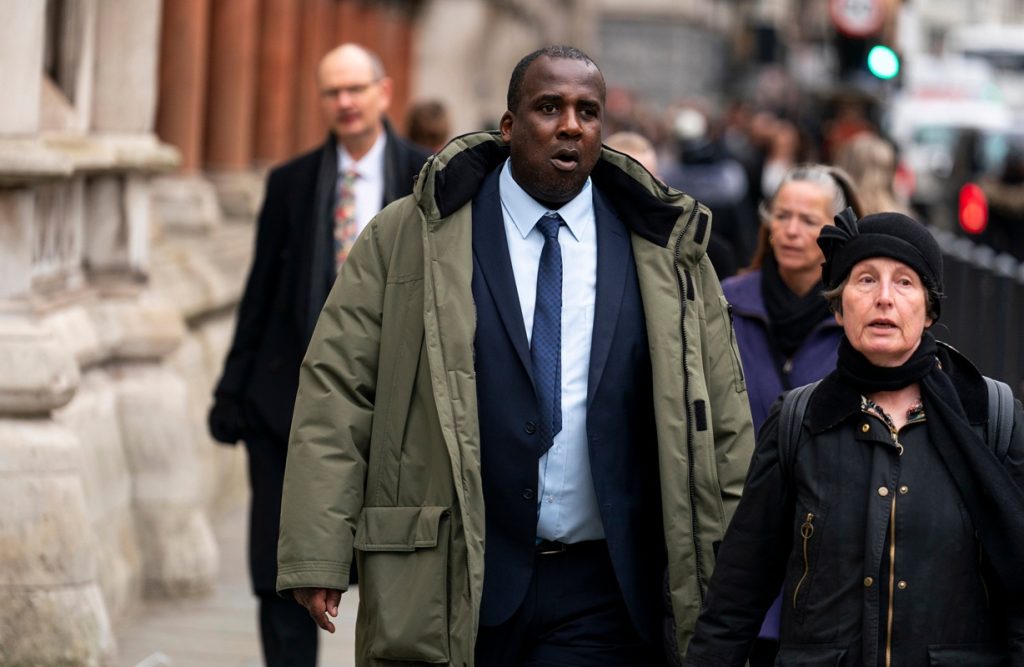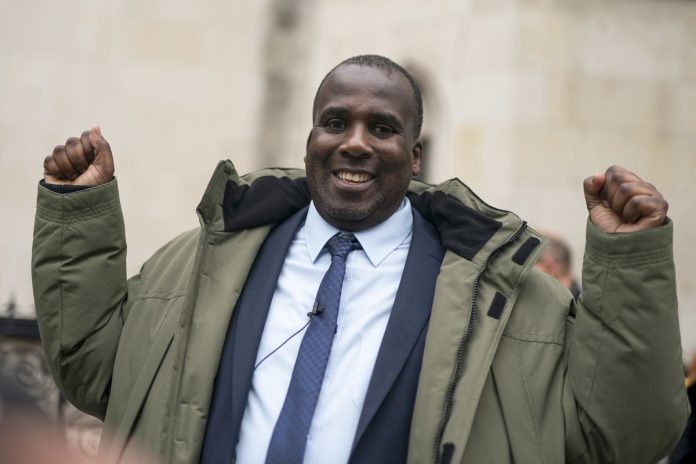A man with brain damage, sentenced to life imprisonment for the murder of a London shopkeeper, had his decades-old conviction overturned on Wednesday after an appeals court raised concerns that police may have coerced a false confession from a mentally vulnerable individual.
Oliver Campbell, who suffers from cognitive impairment since infancy and has difficulties with concentration and memory, was just 21 years old when he was jailed in 1991. His conviction was based in part on statements his lawyer later claimed were forced.
“After nearly 34 years, the fight for justice is finally over,” Campbell said. “I can now start my life as an innocent man.”
Campbell, now in his 50s, had been convicted of the robbery and murder of Baldev Hoondle, a shopkeeper who was fatally shot in the head in his east London shop in Hackney in July 1990.
Despite a previous appeal being rejected in 1994, Campbell was released from prison in 2002 under conditions that could have sent him back to prison if he reoffended.
His defense lawyer, Michael Birnbaum, argued that police had manipulated Campbell into confessing to accidentally pulling the trigger. Campbell was interrogated more than a dozen times, sometimes without a lawyer or an adult present.
Birnbaum highlighted that Campbell’s learning disability left him vulnerable, making him unable to properly defend himself. He described the confession as nonsensical and riddled with inconsistencies that contradicted the facts of the case.
At trial, Campbell testified that he was not involved in the robbery and couldn’t recall where he had been at the time.
Eric Samuels, a co-defendant who has since passed away, pleaded guilty to the robbery and was sentenced to five years in prison. He had told his lawyer that Campbell was not the gunman and later informed others that Campbell wasn’t present during the robbery.

Lawyers continued to fight for Campbell’s innocence, and his case was eventually referred to the Court of Appeal by the Criminal Cases Review Commission, which investigates potential miscarriages of justice.
Read More: Apple Unveils iPhone 16
Although the Court of Appeal judges rejected most of Birnbaum’s grounds for appeal, they expressed concern about the reliability of a confession from someone with a mental disability. The court deemed Campbell’s conviction “unsafe” and quashed it, ruling out the possibility of a retrial.

